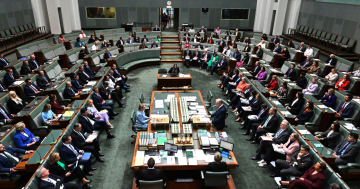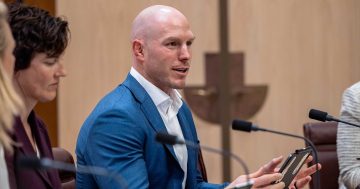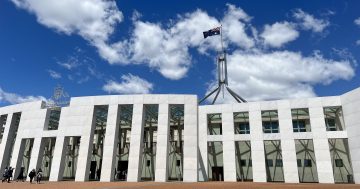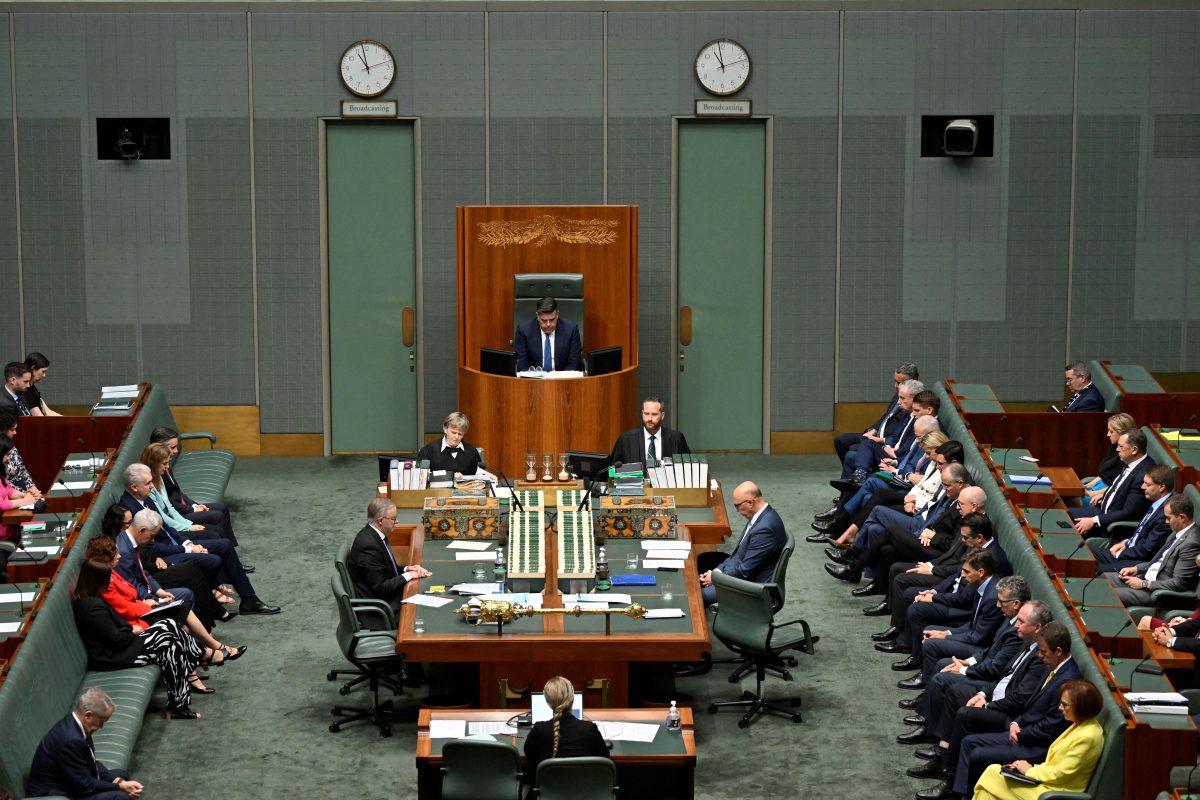
How much do you know about the House of Representatives beyond Question Time? Photo: Auspic, Department of Parliamentary Services.
For most people The House of Representatives – or the “People’s House” – is synonymous with one thing: Question Time. But according to one official, though the most watched and, perhaps, most dramatic part of the Parliamentary day, Question Time accounts for only 8.7 per cent of its time.
So what does the House of Representatives do the rest of the time?
Department of the House of Representatives director of procedural development Natalie Cooke says it’s a question for which many people will only have a vague answer.
Ms Cooke says most people know the House of Representatives is one of the two houses of the Australian Parliament (the other being the Senate), whose functions include making laws, scrutinising government administration and controlling government expenditure. How it achieves these objectives, and how the public can get involved, is less known.
“I think sometimes people don’t have a way ‘in’, to access and understand what the House is doing the rest of the time,” she says.
“If you just happen upon a reading of a proposed law, it can be difficult to orient yourself.”
Most proposed acts or “bills” start as government initiatives after a need for policy or legislative changes is identified.
Once introduced in the House of Representatives, a bill must pass through three “readings”, where a clerk literally stands up and reads the title of the bill. Though a historic Westminster practice dating back several centuries, when literacy was not necessarily a given, there’s a reason this step remains today.
“It’s a confirmation of the bill at each stage,” Ms Cooke says.
The second reading is when the House considers the principles of the bill – a chance to identify the intent and effect of the bill and debate its policy merits.
The bill then moves into a phase of more direct scrutiny, when the House delves into the nitty gritty and government, crossbench and opposition members can propose changes.
Once any necessary amendments are agreed to, a third reading is the House’s confirmation of the bill in its final form. If passed, the bill progresses to the Senate for an equivalent process.
The House and Senate must pass each bill in identical form if it is to become an act and may go back and forth between the two houses until it does. If a Parliament ends before this occurs, the process begins again. But if agreed upon, the Governor-General “assents” (signs off) and the bill becomes an act.
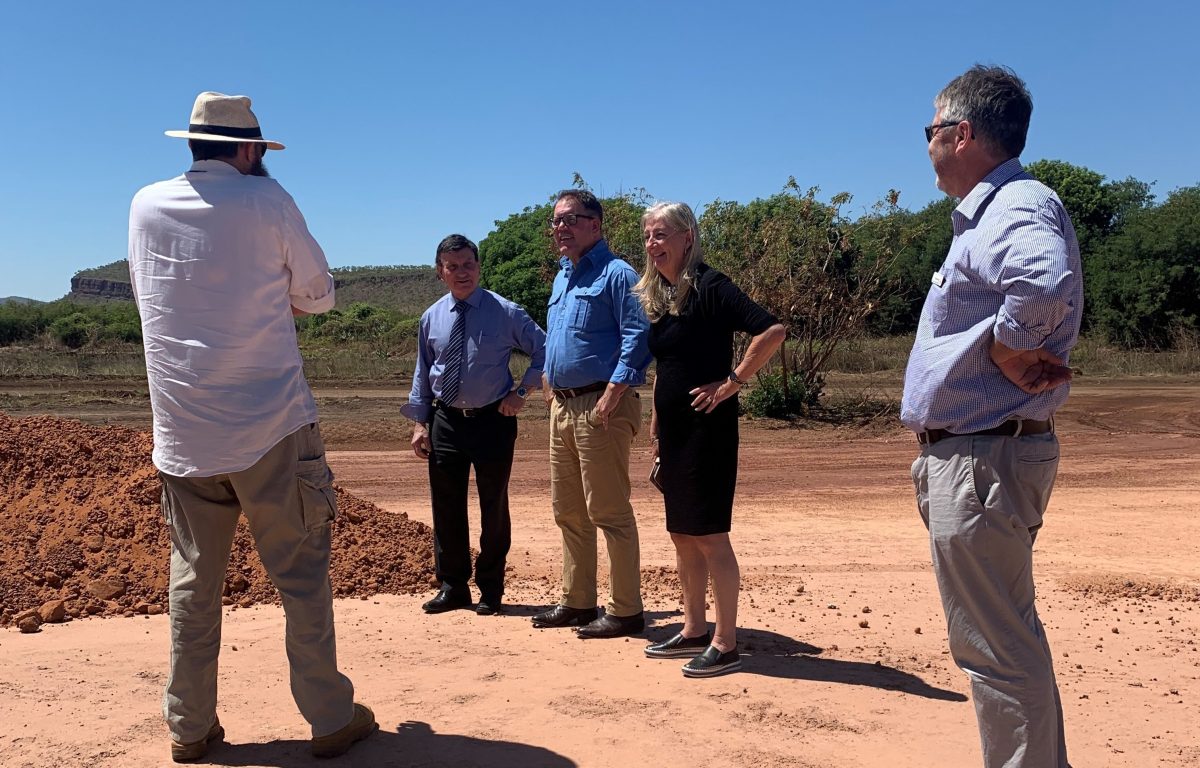
The House Standing Committee on Regional Development, Infrastructure and Transport performs a site inspection. Photo: Department of the House of Representatives.
There’s another House element members of the public generally don’t understand; one that gives them the chance to comment on legislation or policy.
Currently 16 House committees cover specific areas of interest, agreed upon by the current Parliament as aligning with its interests. They range from agriculture to social policy.
Committees are the eyes and ears of the House; they inquire and report to the House on a range of matters and unlike the House itself, are mobile.
“They can travel into remote communities and take evidence there,” Ms Cooke explains. “They can do site inspections to better understand the issues they’re hearing about from the people directly impacted.”
Committees release reports with recommendations, to which the government is required to respond within six months.
“Committees do all sorts of interesting things, and people can engage with them as private citizens by making submissions,” Ms Cooke says.
“They are a great way for citizens to draw attention to have a say. Government departments and businesses can also contribute to inquiries by making submissions or appearing as witnesses.”
Lack of awareness of these options is why the Department of the House of Representatives runs regular seminars on “How the House Works” for anyone who works in or with the government.
“We want to help people put together that whole picture – the legislative process end to end, and how a committee goes from adopting an enquiry to the government responding to a report,” Ms Cooke says.
“We hope it’ll help people understand the work of the House and its committees, and empower them to engage with it more confidently.”
She says the courses may be of particular interest to those working in a state office in the Australian Public Service (APS).
“They don’t often get a chance to see the Parliament at work, and might want more insight and access then they may readily have from their work desks.”
The next half-day How the House Works seminars, available online or in person at Parliament House, take place on Wednesday 24 July and Wednesday 23 October – book here.


